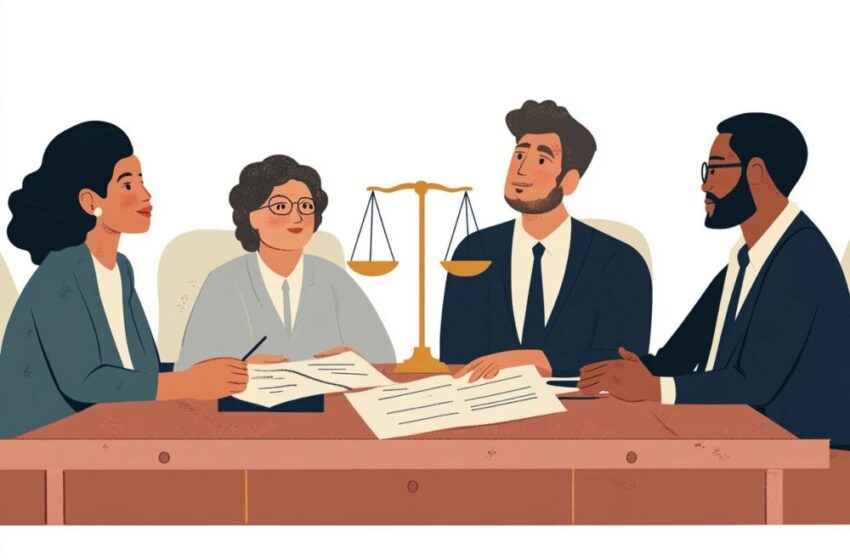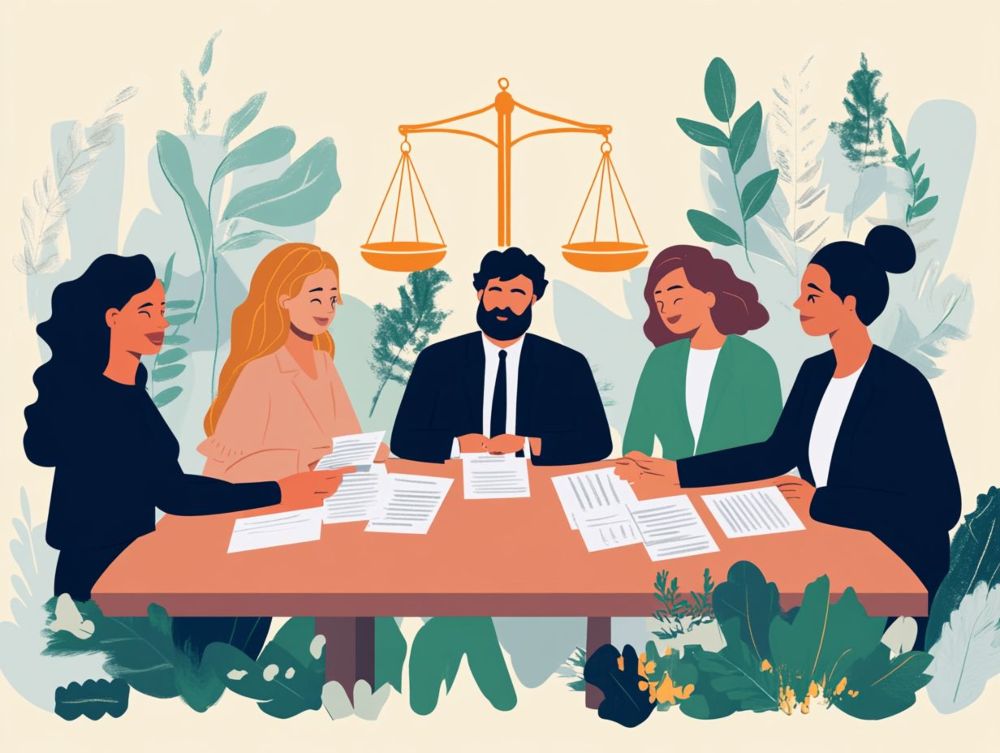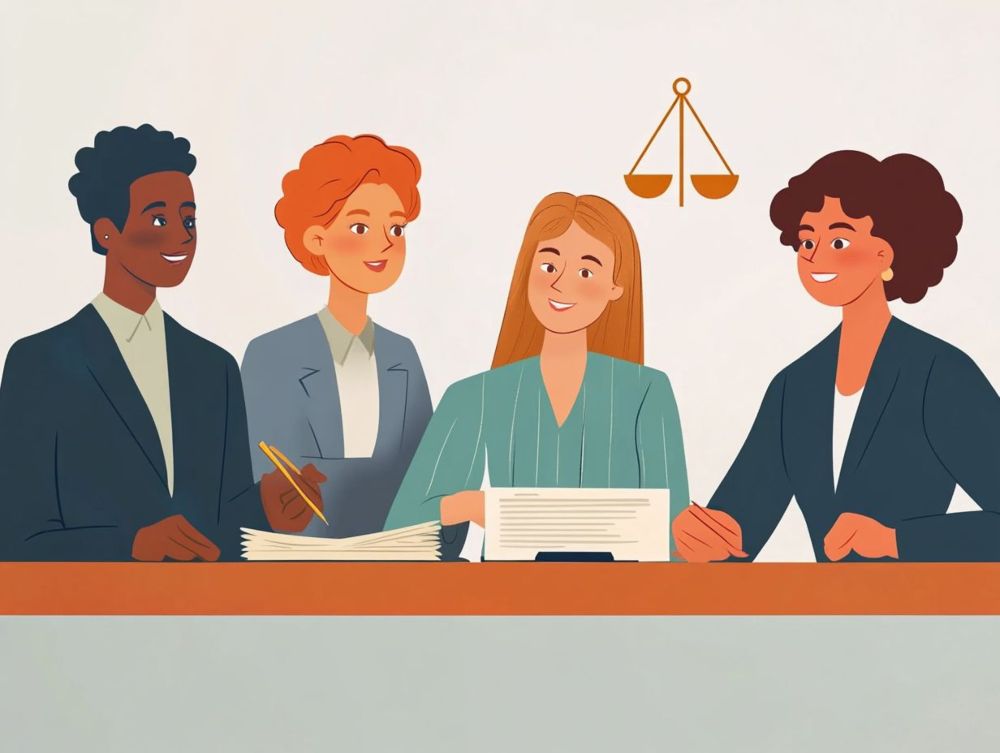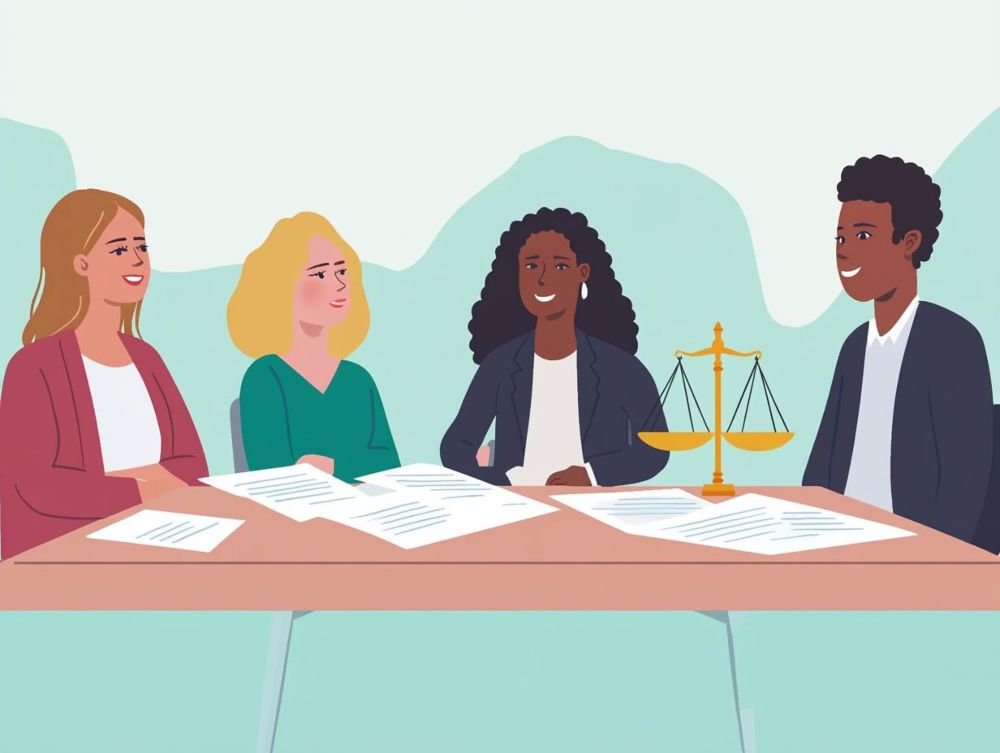
Ethical Considerations in Out-of-Court Settlements
In the context of legal disputes, out-of-court settlements present a means of resolution that is often more expedient and less contentious than traditional litigation. These agreements entail ethical complexities, highlighting the significance of negotiation ethics. It is essential to comprehend the moral dilemmas that may arise during the settlement process to ensure fairness and justice for all parties involved. This article examines the ethical considerations and the associated moral dilemmas that influence settlement negotiations, emphasizing common dilemmas, critical factors for ethical decision-making, and the vital role of legal professionals in upholding integrity throughout the process. We will navigate the intricate landscape of ethical settlement practices, including negotiation ethics frameworks and their implications for the pursuit of justice.
The Importance of Ethical Considerations in Out-of-Court Settlements
Ethical considerations are of paramount importance in out-of-court settlements, significantly impacting party autonomy influencing the negotiation approach and the assessment of fairness in outcomes.
These considerations ensure that all parties involved—both plaintiffs and defendants—are treated with respect and dignity, thereby fostering trust in the legal process. Additionally, the maintenance of confidentiality is essential for preserving the integrity of settlement agreements, which frequently involve sensitive information.
By adhering to established ethical guidelines, legal professionals can effectively navigate the complexities of negotiation power dynamics while addressing power imbalances striving for equitable outcomes that uphold principles of justice and accountability.
Understanding the Impact of Settlements on All Parties Involved
Settlement agreements can have a profound impact on all parties involved in a legal dispute, influencing stakeholder interests and shaping the trajectory of individual victim rights. Understanding the delicate balance of power relations of power in these situations is essential, as ethical implications may arise when one party feels coerced into accepting terms that are not favorable.
Achieving informed consent is crucial to ensure that all parties are adequately informed and comprehend the potential legal implications of their decisions represented and comprehend the consequences of their decisions. By recognizing the diverse interests at play, mediators and legal professionals can facilitate more equitable dispute resolution processes.
In many instances, power imbalances can result in one party feeling pressured to accept a settlement that does not accurately reflect their needs or rights. It is imperative to ensure that victims are fully aware of their rights and the potential long-term ramifications of any agreement they enter into.
Legal representation is instrumental in this process, providing necessary legal advice, enabling victims to navigate complex legal terminology and implications, ultimately enabling them to make informed choices and achieve outcome fairness. Addressing these dynamics not only upholds ethical standards in practice but also fostering trust and long-term relationships fosters trust among all parties, paving the way for more sustainable resolutions.
Moral and Ethical Dilemmas in Settlements
Moral and ethical dilemmas often emerge during settlement negotiations, posing challenges that can impede the pursuit of justice and fairness.
Legal professionals are required to navigate a complex landscape characterized by potential conflicts of interest and ethical obligations, especially in situations where power imbalances exist between the negotiating parties.
These dilemmas may encompass issues such as coercion, exploitation, or the undue pressure to accept settlement terms that may not serve a party’s best interests.
Acknowledging and addressing these moral challenges is crucial for upholding ethical principles for preserving integrity throughout the negotiation process.
Examples of Common Dilemmas
Common ethical challenges in settlement negotiations frequently encompass coercion and exploitation, which can result in unjust outcomes that undermine the integrity of the legal system. For instance, a party may feel compelled to accept a settlement due to financial pressures or intimidation, thereby raising serious concerns regarding the fairness of the decision-making process and the risk of undue influence.
These dilemmas not only call into question the accountability of the negotiating parties and their social responsibility but can also lead to significant legal repercussions if ethical guidelines are violated. Recognizing these scenarios enables legal professionals to refine their negotiation strategies while placing a strong emphasis on ethical standards.
Consider, for example, a situation wherein an individual, lacking legal representation, is presented with a settlement offer that initially appears advantageous but, upon further examination, waives their right to pursue future claims. This scenario underscores a troubling propensity for exploitation, as vulnerable parties may agree to terms without fully comprehending the implications, leading to ethical risks.
Similarly, a corporate entity may exploit its power to impose an inequitable settlement on a smaller counterpart, thereby creating a power imbalance that raises ethical concerns. Such conduct undermines trust in the legal process and serves as a poignant reminder that maintaining ethical boundaries in negotiations is crucial for upholding justice and safeguarding the rights of all parties involved.
Factors to Consider in Making Ethical Decisions

In the context of settlement negotiations, it is imperative to prioritize ethical decision-making by taking into account both legal obligations and the moral principles that govern the actions of all parties involved.
Legal compliance serves as a fundamental basis, ensuring that negotiations align with established regulations while fostering procedural fairness and fairness norms and the fairness doctrine, ensuring equity in the process.
Informed decision-making is of paramount importance, as it enables parties to comprehensively understand their rights and obligations, thereby enhancing the ethical legitimacy of the negotiation process.
By concentrating on these factors, legal professionals can effectively navigate the complexities of ethical decision-making with integrity and due respect for all stakeholders involved.
Legal Obligations and Moral Principles
Legal obligations and moral principles are intricately connected within the complex realm of settlement negotiations, where fiduciary duties and conflicts of interest must be meticulously managed. In this environment, attorneys are responsible not only for advocating for their clients but also for navigating a framework of ethical responsibilities that can significantly influence the outcomes of negotiations, requiring a focus on conflict of interest.
Maintaining a delicate balance in adhering to these obligations necessitates a comprehensive understanding of the legal frameworks that govern practice, coupled with a steadfast commitment to upholding integrity and fairness. Legal practitioners must remain vigilant in recognizing potential conflicts of interest that may arise, ensuring that their decisions reflect both compliance with the law and adherence to the ethical standards expected within their profession.
This dual obligation underscores the critical importance of ethical decision-making, as it serves to protect the interests of clients while fostering a culture of trust and respect within the legal system.
Addressing Ethical Dilemmas in Settlement Negotiations
Addressing ethical dilemmas in settlement negotiations necessitates a thorough understanding of conflict resolution strategies and ethical practices that emphasize fairness and transparency.
Mediators are instrumental in facilitating discussions, guiding parties toward mutually acceptable outcomes while remaining vigilant to potential ethical challenges.
Effective negotiation strategies should incorporate risk assessment to identify potential pitfalls that could undermine the integrity of the settlement process.
By promoting an atmosphere of cooperation and mutual respect, legal professionals can adeptly navigate ethical dilemmas and uphold good faith.
Strategies for Resolving Conflicts
Strategies for resolving conflicts during settlement negotiations must consider the dynamics of negotiation power and the necessity for accountability from all parties involved. Ethical transparency is essential in fostering trust and ensuring that each party feels acknowledged and respected throughout the process.
To achieve this, it is important for parties to engage in open dialogue that emphasizes the articulation of concerns and interests, thereby creating an environment conducive to collaborative problem-solving. Establishing clear expectations and boundaries encourages accountability while facilitating an understanding of individual motivations and underlying issues.
Incorporating mediation techniques can further assist in bridging communication gaps, helping to realign the focus toward mutually beneficial outcomes. By integrating these strategies, the negotiation process not only addresses the existing conflict but also establishes a foundation for future interactions characterized by respect and integrity, ultimately guiding all parties toward a more equitable and cooperative relationship.
Ensuring Fairness and Justice in Settlements

Ensuring fairness and justice in settlements is essential for maintaining the credibility of the legal system and upholding the rights of all parties involved.
Legal professionals must prioritize fairness in negotiation by adhering to ethical practices that promote transparency and accountability throughout the process.
By offering sound legal advice and advocating for equitable outcomes and compensation, they can assist parties in navigating the complexities of settlement negotiations with confidence.
This unwavering commitment to fairness not only enhances the justice outcomes of individual cases but also contributes significantly to the overall integrity of the justice system.
Importance of Transparency, Communication, and Fairness Norms
The significance of transparency and communication in settlement negotiations cannot be overstated, as these elements are essential for fostering trust and ensuring that all parties are well-informed. An ethical review of negotiation processes is instrumental in identifying potential biases and promoting equitable outcomes for all stakeholders involved.
When parties engage in open dialogue, they cultivate an environment conducive to understanding diverse perspectives, which can lead to more innovative and satisfactory resolutions. By being transparent about their motivations and limitations, the parties involved can reduce misunderstandings and build rapport, thereby significantly enhancing the likelihood of a successful settlement.
This collaborative approach not only reinforces ethical standards but also encourages responsible decision-making, facilitating a more comprehensive examination of the facts at hand. Ultimately, embracing transparency in communication can result in more sustainable agreements that reflect shared interests and accommodate the needs of all individuals concerned.
The Role of Legal Professionals in Upholding Ethical Standards and Professional Responsibility
Legal professionals hold a critical position in maintaining ethical standards within settlement negotiations and ethical frameworks, as their actions significantly impact the integrity of the process.
By adhering to established ethical guidelines and principles of fairness, they prioritize representation ethics, thereby fostering an environment characterized by fairness, transparency, and accountability.
Continuous training in negotiation ethics is essential for equipping legal professionals with the necessary tools and knowledge to effectively navigate complex ethical challenges.
Their dedication to upholding high standards of integrity and ethical legal practice highlights the significance of their role in promoting justice within the legal landscape.
Responsibilities, Best Practices, and Ethical Leadership
Legal professionals are bound by specific responsibilities and best practices that govern their conduct during settlement negotiations, ensuring adherence to ethical obligations and legal standards. Maintaining accountability is paramount, as it fosters trust and confidence among all stakeholders engaged in the negotiation process.
Best practices encompass diligent stakeholder engagement, transparent communication, and a steadfast commitment to fairness, all of which enhance the overall integrity of the settlement. By adopting these practices, legal professionals can effectively navigate the complexities of negotiation while cultivating an environment of ethical legitimacy.
Continuous education regarding evolving legal frameworks and ethical guidelines is essential for practitioners. This commitment to professional development not only upholds high standards of professionalism but also equips legal experts with the necessary tools to approach negotiations strategically.
It is imperative for legal professionals to prioritize the establishment of clear objectives and a comprehensive understanding of each party’s interests, ensuring that agreements accurately reflect a genuine consensus. By recognizing the dynamics involved and actively working to address power imbalances, they can significantly improve the quality of outcomes, ultimately contributing to a more just and equitable resolution for all parties involved.
Frequently Asked Questions

What are some common ethical dilemmas that arise during out-of-court settlements?
Some common ethical dilemmas include conflicts of interest, confidentiality, and fairness towards all parties involved.
What is the role of the legal system in addressing ethical considerations during settlements?
The legal system plays a crucial role in ensuring that all ethical considerations are taken into account during settlements. They provide guidelines and regulations to follow and may intervene if any ethical issues arise.
How can parties involved in a settlement ensure ethical behavior?
Parties can ensure ethical behavior by being transparent and honest, avoiding conflicts of interest, and seeking guidance from legal professionals if needed.
What are the consequences of ignoring ethical considerations during a settlement?
Ignoring ethical considerations can lead to legal consequences, damage to reputations, and harm to relationships between parties involved.
What are some resources available for addressing ethical dilemmas and situational ethics during out-of-court settlements?
There are various codes of conduct, ethical guidelines, and professional organizations that provide resources and support for addressing ethical dilemmas during settlements. Consulting with legal professionals is also recommended.
How can cultural differences play a role in ethical considerations during out-of-court settlements?
Cultural differences can impact ethical considerations as different cultures may have varying values and norms. It is important for all parties to understand and respect each other’s cultural perspectives during the settlement process.



